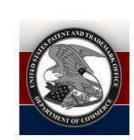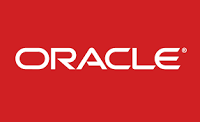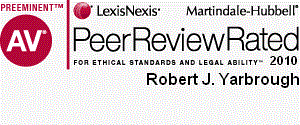Newsletter Issue 82 - December 2015
In this issue:
Patenting pharmaceuticals
Licensing to major manufacturers
Lights out at PTO
Federal Trade Commission tags Oracle
Ask Dr. Copyright ...
Dear Doc:
I hear that in patent law, there's a new worry about "Mayo". What's
up? Did someone leave it out of the fridge? Did it spoil? Did folks
get sick?
Signed,
The Entire Pharmaceutical Industry
Dear Industry:
The "Mayo" you heard about has spoiled a lot of things, and is
likely to cause a lot of sick people not to get better in the long
run, but it's not in a jar. It's a case decided by the Supreme Court
(Mayo Collaborative Servs. v. Prometheus Labs., Inc.) about how you
figure out if an invention is patentable - not if it's novel and
unobvious - but the threshold question of whether you can even
patent it in the first place. That case is used along with Alice
(remember Alice? There's a song about Alice...Alice Corp. Pty. Ltd.
v. CLS Bank Int'l) to analyze patents. These cases set out two steps
that courts must take to address patent eligibility: First,
determine if a "law of nature, natural phenomenon, or abstract idea"
is involved. Then, find out if the invention adds, "something more"
that makes the invention a patentable application of the law of
nature, natural phenomenon, or abstract idea. Confused? Maybe that
is because every court that has considered this question has
essentially said to inventors, show us your invention, and if it
contains "something extra" then we, judges (who are, for the most
part, not scientists, engineers, physicians, etc.) will know it when
we see it.
In the recent case of Endo Pharmaceuticals Inc. v. Actavis Inc. (D.
Del. 2015), Judge Andrews considered a patent for treating pain in
patients with kidney impairment (who might overdose on pain
medications because they can't clear the drug from their
bloodstreams as quickly as someone with normal renal function.) The
patent required using a time-release form of oxymorphone, measuring
the level of renal impairment using a blood test, and adjusting the
dose of pain medication downward as the level of impairment
increased.
Judge Andrews first found that increased levels of pain medication
in the blood of kidney patients was a "natural law". He then
reviewed the patent claim, which required providing the time-release
drug, measuring the level of renal impairment, and administering the
correct amount of the drug as determined from the measured
impairment. He said, the administering step, "merely instructs
physicians to dispense oxymorphone for the treatment of pain in a
well-know[n] manner, while utilizing the natural law to manage the
dosage," adding that "the '737 Patent recognizes the use of
oxymorphone for pain relief is a well-understood activity." Judge
Andrews concluded, "the steps in combination do not transform the
natural law into a patentable application of that law."
Judge Andrews may have been correct, but by saying that the
invention was not eligible for patent protection, rather than simply
that it was not novel, or obvious in view of the prior art, this
analysis makes knowing what inventions are patentable much more
difficult and uncertain. The Mayo/Alice test is being used all over
the country to invalidate patents. The Doc has obtained patents on
medical inventions, computer-implemented systems, and business
methods for his clients for over 30 years, and it's safe to say that
many of those patents would be invalidated under these new
decisions, even though they passed the novelty and obviousness tests
for patentability with flying colors.
What drug, you may ask, does not involve a "law of nature" (it's
well known that if you give a person chemical X, then her body
responds by doing Y)? That is a question that courts, and the entire
pharmaceutical industry will have to address in the coming years.
The Doc knows that a lot of litigation will result from this, so
it's now more important than ever to file patents as soon as a drug
is discovered, so that this law of nature may be treated as a
valuable discovery. After all, the US Constitution, at Art. I, Sec.
8, Cl. 8 says, "To promote the progress of science and useful arts,
by securing for limited times to authors and inventors the exclusive
right to their respective writings and discoveries." Maybe, just
maybe, thinks the Doc, the Supreme Court sould decide to revisit
these issues, and see that inventors make discoveries, and that
sometimes, what judges think is a "law of nature or natural
phenomenon" is an important (yes, patentable) discovery too.
Have an invention that should be protected by a patent? See the
attorneys at LW&H (and do it quickly) so that they may help you to
protect your discoveries. Until next year...
The "Doc"
Have a Great Idea for BMW? Forget About It!

Have you ever had a great idea for an existing product? Were you
dying to approach the manufacturer to suggest it? Do you think that
the manufacturer would even listen to you? David Lazarus, an LA
Times reporter, recently wrote about this subject. Mr. Lazarus
recounts the experience of a Dr. Ron Aryel, who approached BMW with
an idea about applying BMW's gesture control system for handicapped
drivers. BMW responded that it does not take suggestions from
customers. Mr. Lazarus writes about another instance of a similar
response by AT&T to a customer's suggestion for improving its
wireless service. AT&T essentially told the customer to "pound
sand." Wouldn't you think that companies would be more respectful of
its customers? In an ideal world, the answer would be yes, but in a
litigious world, the answer is "no."
It's not that companies don't give a hoot about their customers. but
they are deathly afraid of litigation. A company may be working
independently on the same ideas so it's not an infrequent occurrence
that a customer sues them for stealing a suggestion or idea. We, as
intellectual property attorneys, can attest to this. We are
frequently approached by people wishing to get even with a company
that has allegedly stolen an idea. Do they have proof of this?
Usually, no.
Jeffrey Shulman, a professor at the University of Washington, spoke
to Lazarus about this problem and proposed that "this risk... must
be balanced within an awareness that it's crucial to promote and
maintain customer loyalty and to encourage constructive feedback."
Lazarus suggests that companies should accept "litigation waivers"
so that they may be free to consider customer suggestions and ideas.
He believes that customers with idealistic proposals would gladly
sign such a waiver. Perhaps, but in our experience most customers
want to be compensated for their ideas. Our cynical side suggests
that for popular products, litigation would occur anyway even though
the initial focus of litigation would be the enforceability of the
waiver. We agree with Professor Shulman, it's all about customer
management and feedback. Systems should be developed that promote
customer loyalty, safeguard intellectual property, and promote
feedback. Some customer suggestions may be worth the effort. Even
giving a customer a small percentage royalty or a flat fee payment
would be worth the expense if the idea is truly great. Litigation.
when it occurs, is simply the cost of doing business as it is
already.
What Happens If the Lights Go Out at the PTO?
Now we know. On December 22 the PTO experienced what it called a
'catastrophic failure' of the electronic patent and trademark filing
and data systems due to a power outage. The PTO technology staff
worked through the Christmas holiday, and this writer can testify
that the system was back up and receiving patent filings by Sunday,
December 27. The PTO director extended response deadlines for
persons affected by the failure until December 28.
Can you say 'off-site backup?'
Oracle, Say It's Not So!
The Federal Trade Commission both announced charges of deception
against Oracle and that those claims have been settled. The claims
relate to misleading statements made by Oracle relating to security
vulnerabilities of the Java software. Java is installed on 850
million personal computers, including yours. Oracle represented to
consumers that updates to the Java product corrected security issues
with older versions of the software. In fact, the updates only
removed the most recent version of the software, leaving older,
vulnerable versions of Java in place. Hackers could exploit the old
versions of Java to collect user names and passwords and to launch
phishing attacks.
The proposed settlement has yet to be signed by a judge and the
document released by the FTC does not include any money penalties.
Instead, Oracle agrees to help consumers remove old versions of
Java.
The settlement agreement will make Oracle straight with the FTC, but
not with victims of hacking and identity theft stemming from the
Java vulnerability.
In the coming litigation fire storm, Oracle will shelter behind the
damage waivers of its click-through software contract, while the
class-action attorneys will attack the contract damage limitations
based on Oracle's fraud. Stay tuned to find out who comes out on
top.

